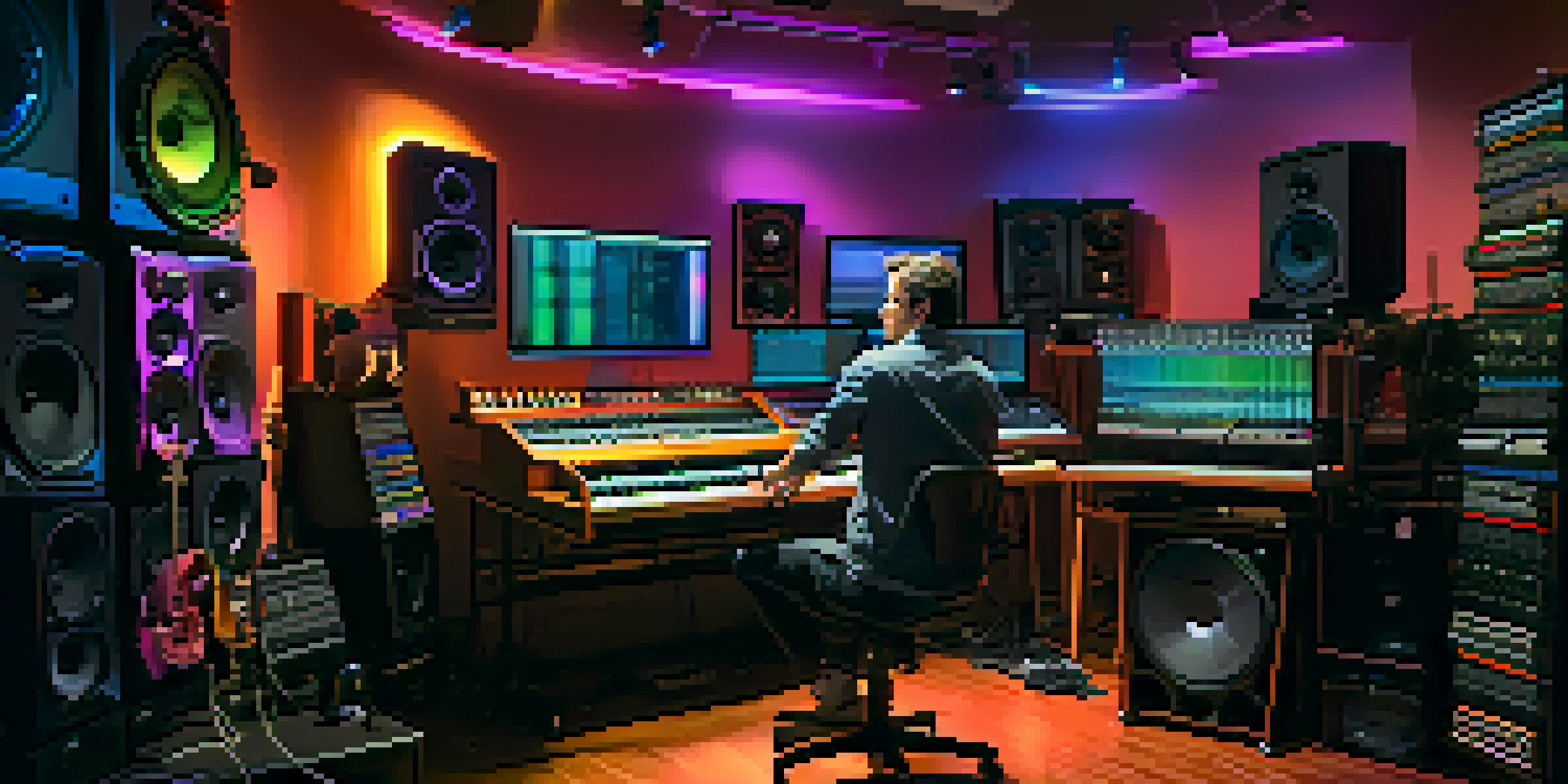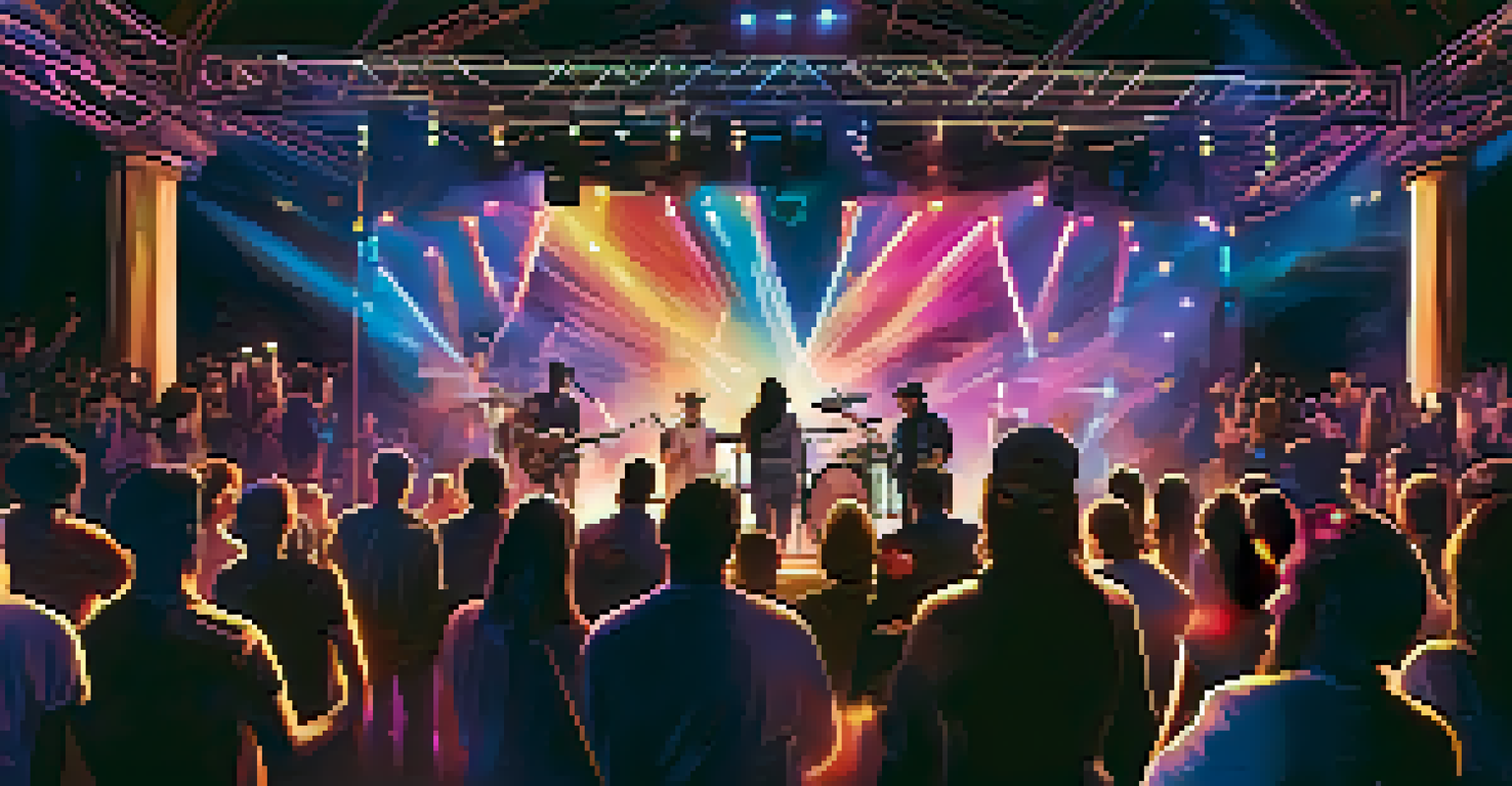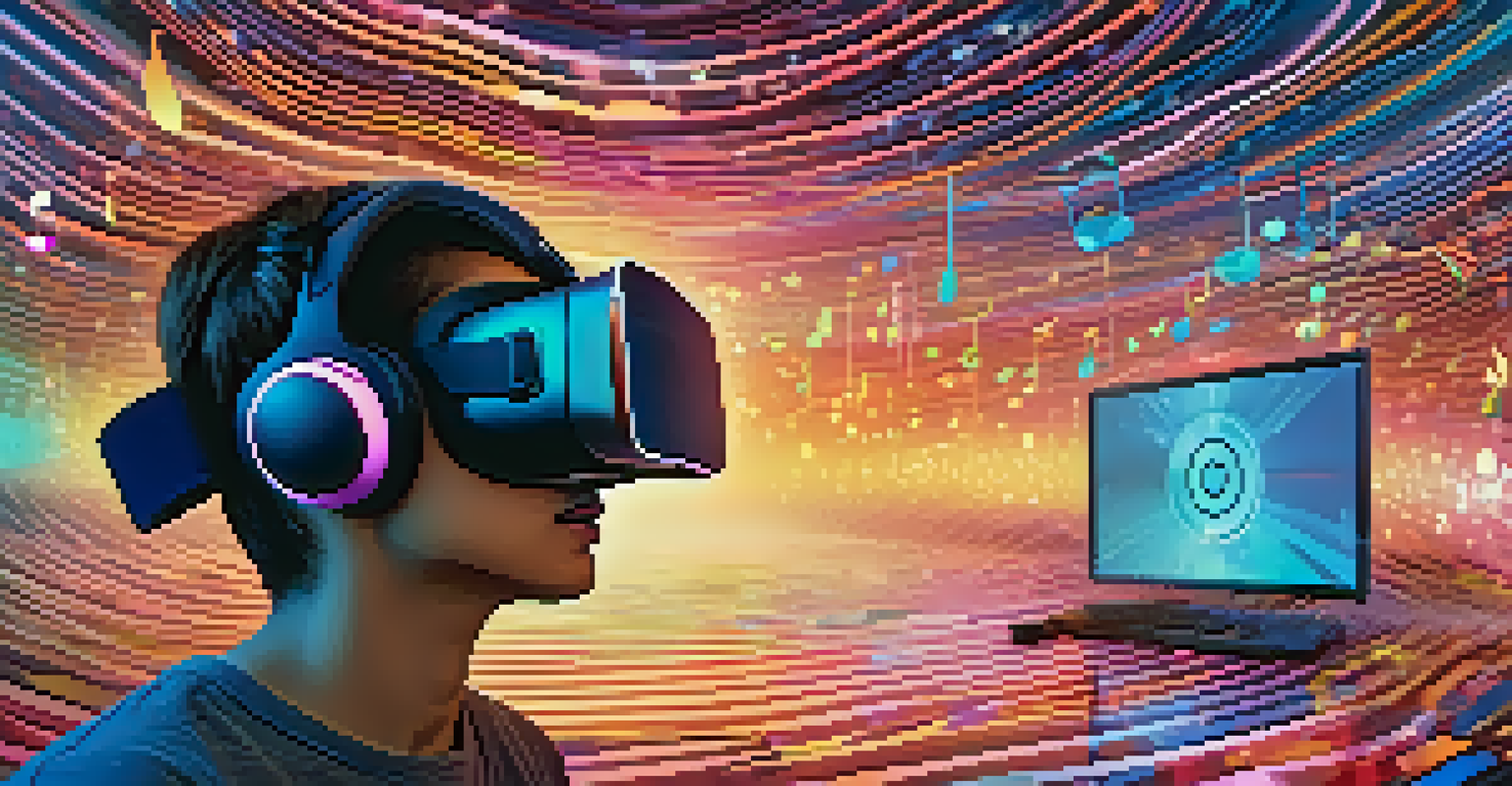How Machine Learning Shapes the Sound of Music Today

Understanding Machine Learning in Music Production
Machine learning, a subset of artificial intelligence, allows computers to learn from data and make predictions. In music production, this technology analyzes vast amounts of sound data to generate new compositions or enhance existing ones. For example, algorithms can study the patterns of popular songs, helping producers create tracks that resonate with current trends.
The future of music will be shaped by the marriage of technology and human creativity.
This process is similar to teaching a child to play music by listening to various styles. As the computer 'listens' to different genres, it picks up nuances, helping it understand what makes a song catchy or emotionally impactful. The result is a collaboration between human creativity and machine analysis, leading to innovative sounds.
With tools like Google’s Magenta and OpenAI’s Jukedeck, musicians now have powerful allies in their creative process. These platforms offer a variety of features, from generating melodies to suggesting chord progressions, making it easier for artists to experiment and push boundaries.
Enhancing Music Recommendations with Machine Learning
One of the most visible impacts of machine learning in music is in the realm of recommendations. Streaming platforms like Spotify and Apple Music use sophisticated algorithms to analyze user behavior and suggest songs that listeners are likely to enjoy. This personalization transforms how we discover music, turning recommendations into tailored playlists.

Imagine walking into a library where every book is selected just for you based on your interests—this is how streaming services curate music. By examining factors such as listening history, song characteristics, and even time of day, algorithms create a unique listening experience for every user.
AI Enhances Music Production
Machine learning tools help producers streamline their workflow and improve sound quality by analyzing data and making suggestions.
This technology not only helps listeners find new favorites but also supports lesser-known artists by placing them alongside popular tracks in curated playlists. As a result, the music landscape becomes more diverse, allowing hidden gems to shine.
The Role of AI in Music Composition
Artificial intelligence is beginning to take on a role traditionally held by composers. With machine learning algorithms, computers can analyze existing music and create new pieces that mimic various styles or genres. This capability raises fascinating questions about creativity and authorship in the music industry.
AI can analyze and generate music, but the emotional depth of human experience remains irreplaceable.
For instance, AI-generated music can be heard in everything from film scores to background tracks in video games. By using tools like AIVA (Artificial Intelligence Virtual Artist), creators can produce compositions that evoke specific emotions, much like a human composer would.
However, the presence of AI in composition also invites debate about originality. While machines can generate music, the emotional depth and personal touch of human experience remain irreplaceable, making collaboration between AI and artists a promising frontier.
Machine Learning in Music Production Techniques
In the studio, machine learning is revolutionizing production techniques, enhancing the quality of sound and reducing time spent on mixing. Tools powered by AI can assist sound engineers in identifying the best takes and suggesting modifications to improve the overall audio quality. This shift allows producers to focus more on the creative aspects of music-making.
Consider a scenario where a sound engineer spends hours listening to multiple takes of a vocal performance. Machine learning can expedite this process by quickly analyzing which take best captures the artist's emotion and technical precision. This efficiency not only saves time but also enhances the final product.
Personalized Music Recommendations
Streaming platforms utilize machine learning algorithms to curate tailored playlists, enhancing the music discovery experience for users.
Furthermore, AI-driven plugins can analyze and adjust levels, EQ, and effects in real-time, leading to a polished sound that would typically require extensive manual adjustments. This blend of technology and artistry is paving the way for a new era in music production.
Creating Interactive Music Experiences with AI
Machine learning is also changing how we interact with music through immersive experiences. Artists are now using AI to create interactive performances, where the music evolves based on audience reactions. This innovative approach blurs the lines between performer and listener, making concerts and events more engaging.
Imagine attending a live show where the music adapts in real-time to the crowd’s energy. This dynamic experience is made possible by AI algorithms that analyze factors like audience movement and sound levels, adjusting the performance accordingly. It creates an electrifying atmosphere that keeps everyone on their toes.
This technology not only enhances live music but also extends to virtual platforms, where AI can create personalized soundscapes for users based on their preferences. Whether at a concert or in a virtual reality environment, the potential for interactive music experiences is limitless.
Challenges and Ethical Considerations of AI in Music
Despite the benefits of machine learning in music, there are challenges and ethical questions that arise. Issues of copyright, originality, and the potential for job displacement in the music industry are hot topics of discussion. As AI-generated music becomes more prevalent, determining ownership can become complicated.
For example, if a song created by an AI becomes a hit, who is credited? The programmer, the artist who used the tool, or the AI itself? These questions require careful consideration as the lines between human creation and machine output blur.
AI Challenges in Music Creation
The rise of AI in music composition raises important questions about originality, copyright, and the balance between technology and human creativity.
Moreover, while machine learning can enhance creativity, there’s a concern that relying too heavily on algorithms may lead to a homogenization of sounds. Striking a balance between technology and human artistry will be crucial for the future of music.
The Future of Music in a Machine Learning World
As we look ahead, the future of music will likely be shaped significantly by machine learning advancements. With ongoing improvements in AI technology, we can expect even more innovative tools that empower musicians to explore new creative avenues. The collaboration between artists and machines will continue to evolve, leading to unique sounds and experiences.
For instance, future AI systems might be able to understand emotional nuances better, allowing them to generate music that resonates deeply with listeners. This could open up new possibilities for genres and forms of expression that we haven’t yet imagined.

Ultimately, the marriage of technology and music can lead to a richer, more diverse musical landscape. By embracing machine learning while honoring the human element, we can look forward to a vibrant future in the world of music.